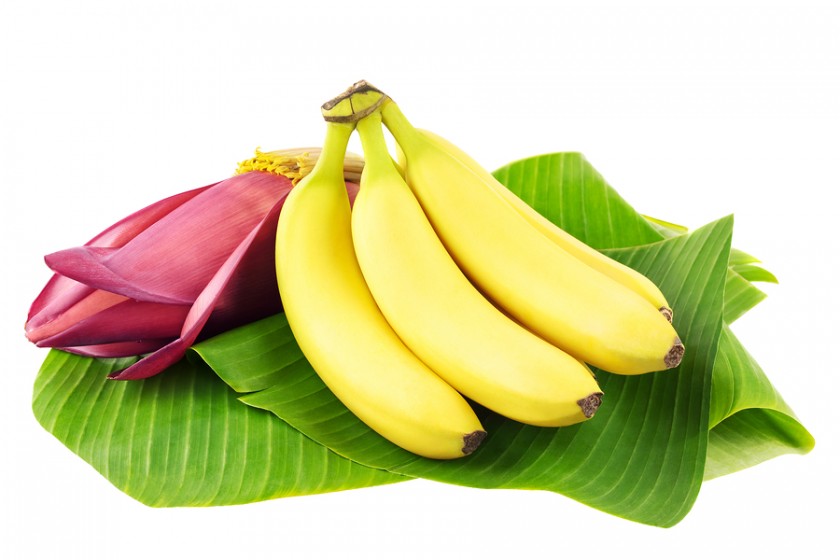
Photo by: Bigstockphoto
Banana is a type of berry produced by an herbaceous flowering plant that belongs in the genus Musa. The fruit is characterized by its soft, starchy flesh, green, red, or yellow rind, and curved shape. Bananas are some of the most nutritious fruits in the world. All species of bananas are a rich source essential vitamins and minerals that improve health and promote weight loss. And for those who are vulnerable or suffering from cardiovascular disease, bananas make a great health food too. In today’s post, we are listing down the amazing benefits of bananas to the heart and arteries:
Reduces the Risk of Obesity
Obesity is a metabolic disorder with associated risk of heart disease. Being overweight causes abnormal metabolism that leads to cardiovascular ailments. Studies show that obese individuals are likely to develop coronary heart disease, hypertension, and congestive heart failure.
Eating bananas regularly helps boosts weight loss in many ways. A medium-sized banana yields only 90 calories. The fruit is packed with dietary fiber that prolongs the feeling of fullness. Bananas contain zero fat so it does not increase the risk of heart and arterial disease. Because it is low in calories, high in fiber and zero fat, bananas make the ideal diet food!

Curbs Cravings
Bananas curb cravings and promote satiety by inhibiting the production of the hunger hormone ghrelin. An elevated level of ghrelin reduces satisfaction after a meal. When you are not satisfied with your meal, you tend to experience intense cravings and hunger. All these lead to overeating. Overeating causes unwanted weight gain and eventually obesity. Eating a banana fills you up nicely so you don’t graze over the course of the day.
Reduce the Risk of Hypertension
Potassium is a mineral that regulates blood pressure. High blood pressure could damage the arteries and the heart tissues. Sustained high blood pressure increases the risk of heart diseases, including heart attack. Banana happens to be a rich source of this mineral.
Potassium lowers blood pressure by relaxing the tension that builds in the veins and arteries. The fiber in bananas works hand in hand with potassium to eliminate fatty plaques in the arteries and blood vessels that obstruct blood flow. When the veins and arteries are flexible, blood is able to flow freely. When the blood flows freely, the cells and organs obtain the oxygen and nutrients they need for optimal performance. A diet rich in potassium is proven to reduce the risk of strokes and heart attack.
Energizes the Body
When the body is full of energy, physical performance is enhanced. An active lifestyle is the best way to reduce the risk of heart disease. Research shows that distance cyclists who ate half a banana every fifteen minutes of a three-hour race were able to sustain peak energy levels unlike those who did not eat a banana at all. The same study found that the performance of the banana-eating cyclists is comparable to those who consumed sports drinks designed to boost performance.
Just like a regular sports drinks, bananas give the body a boost of energy, while reducing inflammation. The researchers noted that banana eating cyclists and their sports drink-chugging counterparts have similar levels of glutathione. However, only the banana group exhibited a rise in dopamine level.
Essential Nutrients
Bananas are a great source of vitamin B6 and C. According to Mayo Clinic, these essential nutrients reduce the risk of heart disease. Vitamin C and B6 promote healthy heart cells, speed up cell turnover, and repair damaged cells.

 Mega Bored
Mega Bored



